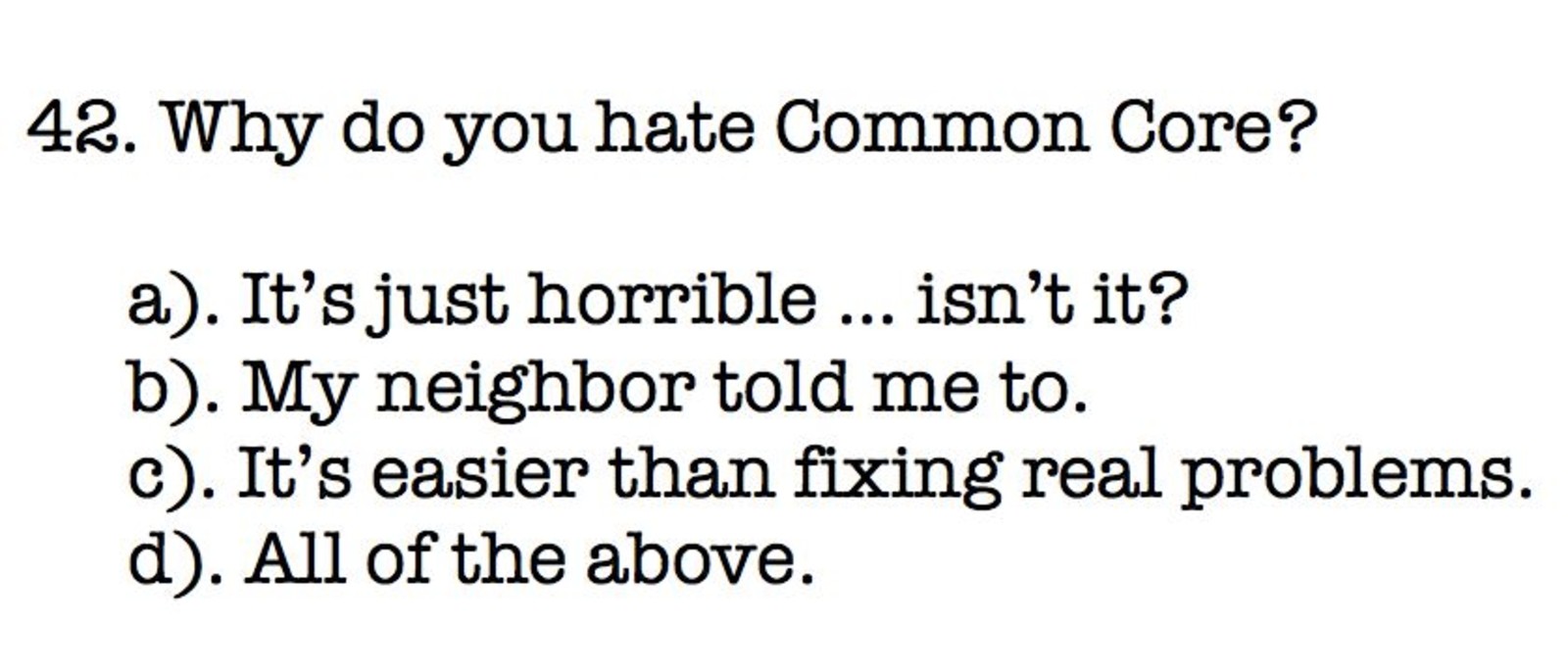Don't blame the Common Core

If the Common Core were a person, I think we could be friends. I’d call her CeeCee and take her out for a drink. She needs it. I imagine CeeCee sobbing on my shoulder, saying something like, “I’m just trying to give all our kids a fair shot. Really I am!” Poor CeeCee. She means well and I think she got a lot more right than anyone is willing to admit, but we’re all just having too much fun hating on her.
It’s all the rage to bash Common Core these days. People see the standards, not as a well-meaning mom like I do, but as a thug with a gun in a dark alley shouting, “Make those kids read developmentally inappropriate texts or you’ll be sorry!” A Siena poll cited by Capital New York in mid-January found that 49 percent of New Yorkers statewide think Common Core implementation should be stopped. Not amended, just stopped. I’m left wondering how many of those voters can actually explain what Common Core is.
In New York City, the standards have become a convenient scapegoat for an education system plagued by big problems. Drastic economic inequality, uneven teaching and mass confusion about pretty much any directive handed down by the Department of Education all serve to create a broken education system. Common Core was intended as a long-term, partial solution to schools that vary widely in quality. If all kids are held to the same grade-by-grade expectations, the logic goes, we’ll be five steps closer to making sure all kids who receive a NYC education receive not just a comparable one, but also a great one.
It’s a big goal and not so easy to reach. But the standards could be game-changing if we get them right. Pre-schoolers are urged to play and explore to foster deep-thinking and problem-solving skills. Older kids are now finding more crossover between their subjects and are developing more technical reading skills to supplement fiction and poetry. (No, the Common Core does not mandate only nonfiction as some overzealous schools and parents have accused). The list goes on. At its heart, CeeCee blends all the best practices of progressive, child-led philosophies and traditional classrooms that emphasize strong skill sets.
For the record, I agree with many of Common Core’s detractors. Yes, implementation has been shoddy. There should have been a longer trial period to iron out many of the kinks and problems in Common Core–inspired curricula that unfortunately our kids and teachers have to work out for themselves in the classroom. Teachers obviously need much more guidance (and leeway), and the hastiness with which Common Core–based curricula and exams were hoisted upon our kids and teachers was not just unnecessary, it was cruel.
But to those 49 percent of New Yorkers who say Common Core needs to be sacked entirely, before we’ve even had a chance to get it right, I say, “Whoa, slow down and take a minute to let the ink dry.”
I’m bothered by the ease with which some educators like to blame Common Core for decisions they make in the classroom. And I’m equally bothered by the ease with which many parents blindly accept it. I realize that testing is on everyone’s minds and the stakes for schools and teachers are high. But when I see 4-year-olds filling out cookie-cutter worksheets or emerging readers being given complex word problems they can’t understand (more on this soon) all misguidedly in the name of “Common Core,” I have to ask: Is Common Core really to blame or is it the hyper-literal, thoughtless way some curriculum-providers and educators interpret the standards?
Yes, opening night was a little rocky, but CeeCee just set the stage. It's up to the rest of us to take this show on the road.
Please Post Comments